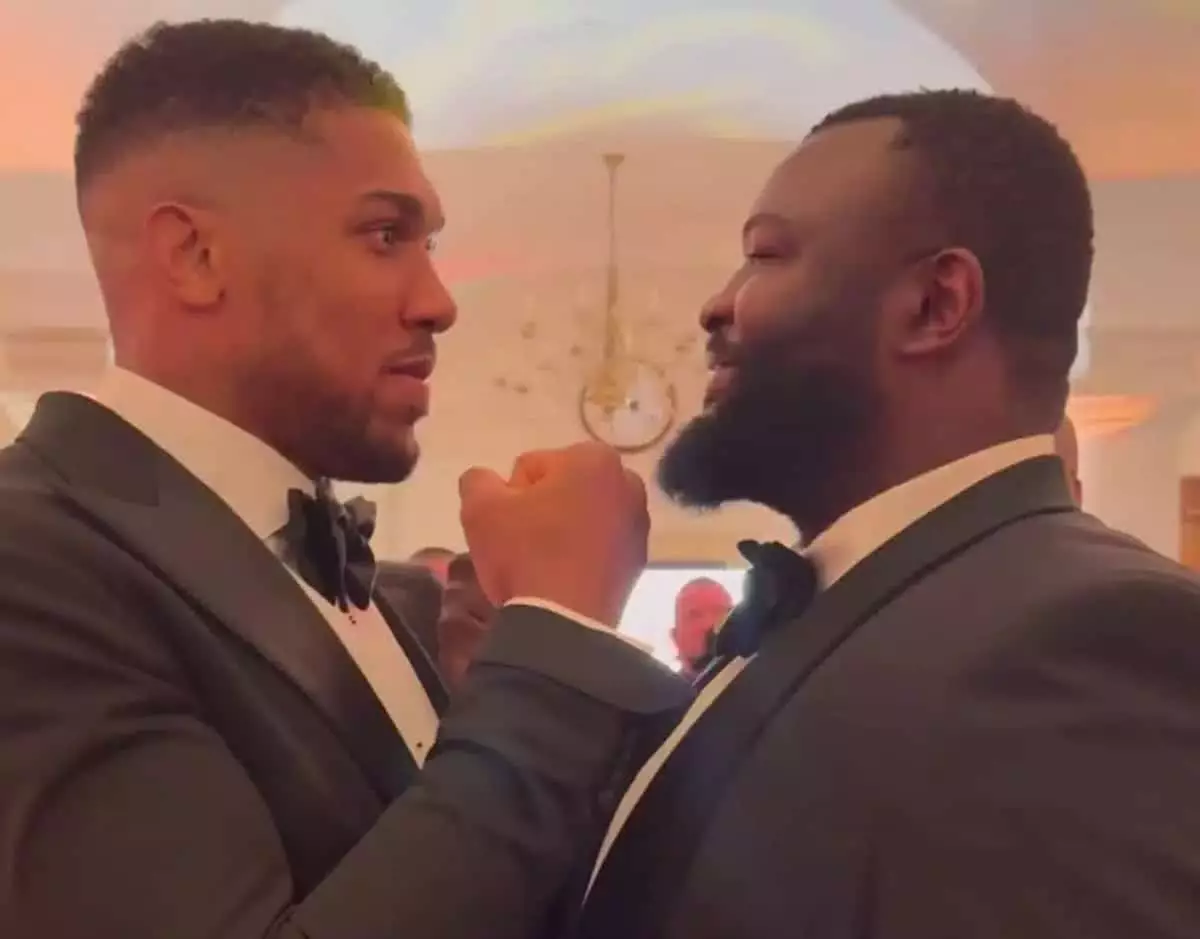The world of heavyweight boxing is never devoid of intrigue and drama, as evidenced by the ongoing dialogue surrounding Anthony Joshua and Martin Bakole. These two fighters, with contrasting trajectories within the sport, have found themselves at the center of a contentious narrative, one which questions the intentions of Bakole and the ongoing evolution of Joshua as a fighter. Eddie Hearn, Joshua’s promoter, has characterized Bakole’s repeated calls for a fight as mere “clout-chasing.” However, a closer examination reveals a multifaceted scenario that uncovers deeper insights into their rivalry, the dynamics of boxing promotions, and the ever-shifting landscape of heavyweight competition.
Eddie Hearn’s assertion that Martin Bakole is leveraging Anthony Joshua’s name for publicity raises critical questions about the nature of ambition within the sport. Bakole, boasting a professional record of 21-1 with 16 knockouts, is not just a fighter looking to capitalize on Joshua’s fame. His desire for a showdown—ideally staged in Africa, reminiscent of the historic Ali-Foreman “Rumble in the Jungle”—arguably signals a genuine willingness to confront one of boxing’s biggest names. While Hearn’s interpretation may hold some validity, dismissing Bakole’s intentions purely as opportunism overlooks the significant monetary and professional incentives tied directly to engaging in bouts against elite opponents.
For upcoming fighters, especially those in the heavyweight division where marketability and fan interest can dictate career trajectories, aligning oneself with prominent figures like Joshua can pave the way for lucrative opportunities. Bakole’s calls for a fight with Joshua could very well stem from a strategic understanding of the sport’s market dynamics rather than sheer opportunism, suggesting a more nuanced debate about the motivations of boxers in a highly commodified industry.
Joshua’s Evolving Legacy: A Fighter at a Crossroads
Once heralded as a dominant force in heavyweight boxing, Anthony Joshua now stands at a precarious juncture in his career. After enduring back-to-back defeats against Oleksandr Usyk, Joshua’s once-unassailable reputation has been called into question. Hearn’s comments reflect a broader concern within Joshua’s team regarding the risk associated with facing fighters like Bakole, who is arguably on an upward trajectory following a notable knockout victory over Jared Anderson. The stark reality is that each additional loss could further diminish Joshua’s options and bargaining power within the boxing landscape.
Joshua’s inclination towards more manageable fights—often described pejoratively as bouts against “tomato cans”—illustrates a fear of entering the ring with genuinely dangerous contenders. Such a strategy may yield short-term financial gains, yet it poses long-term risks to his legacy and public perception. As Hearn acknowledges the potential for future matchups with Bakole and others, the underlying question persists: can Joshua recover the competitive edge needed to take on a formidable opponent?
Promoters like Eddie Hearn play a pivotal role in shaping the careers of fighters, navigating matchups that balance commercial interests with the needs of the athletes. Hearn’s perspective on Joshua and Bakole reveals the challenges inherent in promotional decision-making, especially when a once-celebrated champion is now viewed through a lens of caution. As he considers the future, he recognizes the delicate balance between protecting Joshua and reigniting his public appeal through significant fights.
The potential for a Joshua vs. Bakole bout encapsulates this intricate relationship. For Bakole, this fight isn’t merely a chance to face a former champion; it’s an opportunity to secure his place among the sport’s elite. For Joshua, facing a hungry contender like Bakole may represent a risk, yet it could also be the catalyst needed to reignite his career.
In the evolving narrative of heavyweight boxing, the potential showdown between Anthony Joshua and Martin Bakole remains an enticing prospect. As discussions continue to unfold, the implications of their rivalry extend beyond mere clout-chasing or promotional strategies. They speak to the deeper inquiries of ambition, legacy, and the relentless pursuit of greatness within the sport. Joshua’s path back to the heights of boxing fame will require more than cautious matchmaking; it calls for a daring return to the ring against formidable challengers willing to test both resilience and skill. As the heavyweight division continues to evolve, the questions surrounding Bakole’s motivations and Joshua’s future remain vital to understanding the sport’s trajectory.


Leave a Reply